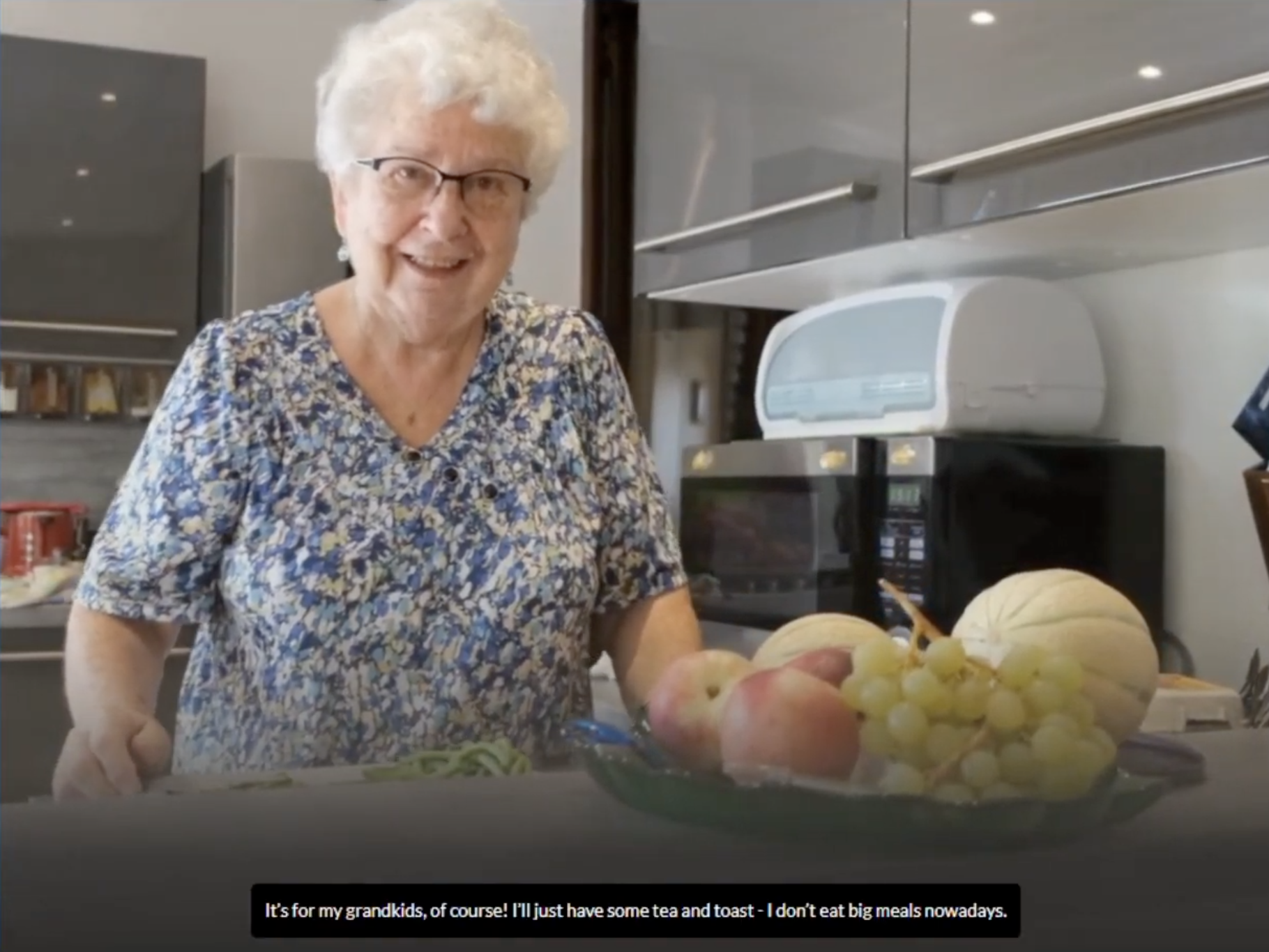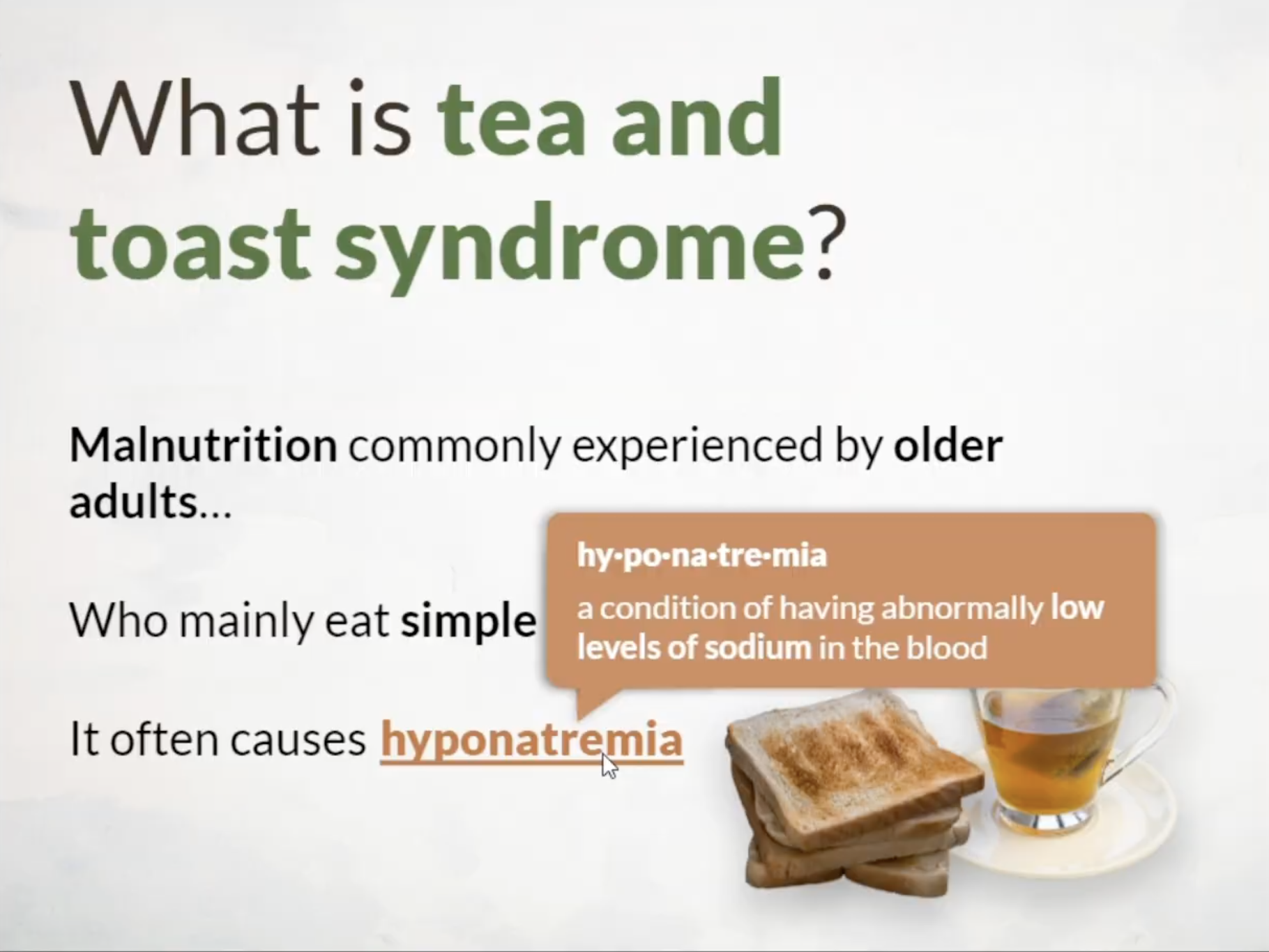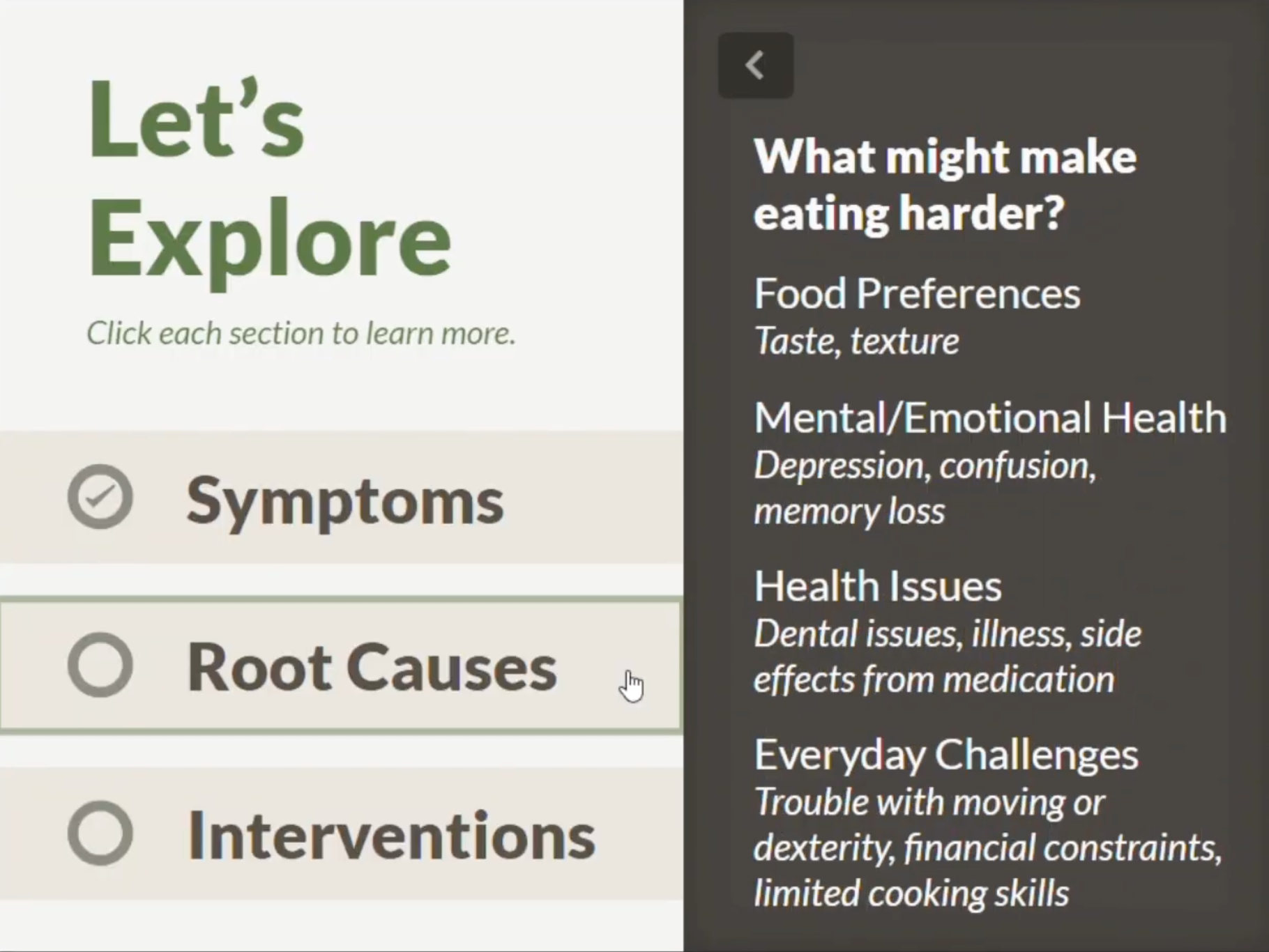PROJECTS
HEALTH AWARENESS MICROMODULE
About ↑
Background
During my internship with the NYU-Meyers Hartford Institute for Geriatric Nursing (HIGN), I was tasked with developing a short module on the topic of my choice. I created an interactive e-learning course on 'Tea & Toast Syndrome,' a dietary pattern in older adults that frequently results in malnutrition, due to its relevance to my internship and personal interest in the topic.
This project took place during May 2025.
Roles:
Instructional Designer & Developer
Tools:
Articulate Storyline
Canva (video editing)
Research ↑
I reached out to health professionals, particularly nurses involved in public health, to serve as my subject matter experts as I sought to understand common health issues facing older adults today. Brief interviews highlighted malnutrition and described the forms it took, and further desk research my topic helped me build out the additional details to start writing a script.
Development ↑
When starting with the module, I originally planned for an audience of health professionals, similar to my other work during the internship. I developed an initial script with that audience in mind, but as I started building the module, I realized that it was best suited for educating older adults and their caregivers who weren't health professionals and would need some guidance on identifying and addressing everyday health challenges like malnutrition.
At the beginning of the lesson, I created a short clip simulating a conversation between the older adult and their doctor, in order to personalize and highlight recognizable patterns that the audience may be able to spot in everyday conversations.

To follow that up, I provided a simple, straightforward overview of the condition. I didn't want to bog the average person down with too much medical vocabulary, but integrating some key terms could aid in communication with doctors and nurses, so I made sure to add context around the terms and support understanding with definition pop-ups.

I also wanted to create a single page that hosted relevant information about hyponatremia, making it easy to find and access for reference. I identified three key areas of information:
- Symptoms that older adults and caregivers could take note of,
- Root causes, aka the various reasons older adults may find it more difficult to get adequate nutrition from their diet, and
- Interventions that older adults and their caregivers could implement by themselves
Each topic would be marked with a checkmark once it has been open and read, and each title would be highlighted when its respective information was open to minimize confusion. Upon reading the topics, the audience could move on to a short knowledge check, focused on reinforcing solution strategies that address why older adults might struggle with maintaining a healthy diet.

